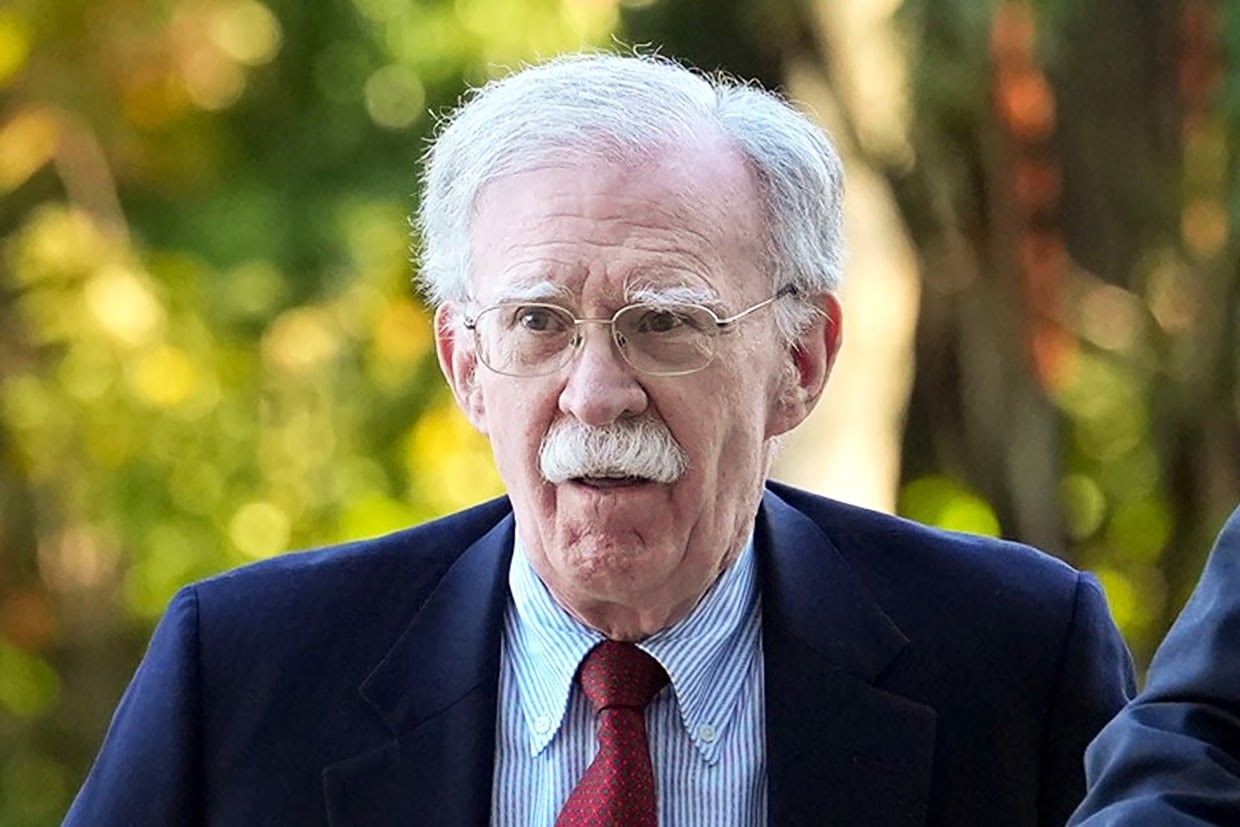John Bolton, who served as national security adviser during Donald Trump’s first term, appeared in federal court in Greenbelt, Maryland, on Friday and entered a not guilty plea to 18 felony counts tied to the alleged mishandling of national defense information.
During the appearance before Magistrate Judge Timothy J. Sullivan, Bolton confirmed he had reviewed the indictment and understood the charges. The judge informed him that each count carries a potential prison sentence, with convictions possibly totaling years behind bars. When asked for his plea, Bolton responded, “Not guilty.”
The indictment includes eight counts of transmission of national defense information and 10 counts of unlawful retention. Federal prosecutors allege that Bolton kept and shared classified material after leaving government, including intelligence related to foreign military operations, sourcing methods, and plans involving U.S. adversaries.
Bolton was released on his own recognizance. Under the conditions set by the court, he must surrender his passport and other travel documents to his attorney. He can travel within the United States without restrictions but must obtain court approval to leave the country.
His next court date is scheduled for November 21, and pretrial motions are due a week earlier. Defense attorney Abbe Lowell told the court that Bolton’s team will waive any request for a speedy trial due to the volume of material and anticipated legal arguments.
Bolton did not speak to the press while entering or leaving the courthouse.
Bolton’s reaction and defense posture
On Thursday night, before his appearance, Bolton issued a written statement accusing former President Trump of weaponizing the Justice Department against him.
He claimed the charges reflect a broader effort to intimidate critics: “These charges are not just about his focus on me or my diaries, but his intensive effort to intimidate his opponents, to ensure that he alone determines what is said about his conduct.”
Bolton said he intends to fight the case and challenge what he calls an abuse of power.
Details prosecutors highlighted
The indictment quotes Bolton’s own past public commentary to argue that he understood classification rules and the consequences for violating them. Federal filings point to remarks he made in 2017 when criticizing Hillary Clinton’s use of a private server, as well as more recent comments condemning the use of encrypted chats for sensitive discussions.
Prosecutors say Bolton kept several documents classified at the highest levels. Among the materials described in the indictment are intelligence reports involving human sources, plans for foreign strikes, and communications tied to U.S. military threats overseas.
Assigned judge and political backdrop
Although Judge Sullivan handled Friday’s proceedings, the case will move to U.S. District Judge Theodore Chuang, an Obama appointee, moving forward. Chuang previously oversaw legal challenges to Trump’s travel ban and disputes involving federal agency cuts during his first term.
The Bolton case is unfolding in the same U.S. Attorney’s Office where a separate politically sensitive inquiry—into Democratic Sen. Adam Schiff—has been discussed internally but has not advanced. Maryland’s federal prosecutors have historically emphasized an apolitical approach, citing cases dating back to Vice President Spiro Agnew’s prosecution in the 1970s.
Bolton’s public and political history
Over a decades-long career, Bolton served in senior roles under Republican presidents, including Ronald Reagan, George H.W. Bush, and George W. Bush. He gained prominence during the Iraq War era and later became a fixture on Fox News and at conservative think tanks.
Trump appointed him national security adviser in 2018. The two clashed publicly over Iran and North Korea policy, and Bolton was forced out in 2019. Since then, he has been a frequent and vocal critic of Trump, publishing a memoir that angered the White House and drawing attention for his media interviews.
What happens next in the case will depend on the court’s handling of national security evidence, defense motions, and whether any of the material remains classified.

